This program is eligible for 6 hours of CLE credit in 60-minute states. In 50-minute states, this program is eligible for 7.2 hours of CLE credit. Credit hours are estimated and are subject to each state’s approval and credit rounding rules.
Eligible for up to 7.2 CPE credits. Session choices will determine type of credit earned.
Overview
Use this page to register for Day One Philadelphia of the Estate Law Institute 2025.
Use this link to register for Day Two Philadelphia ONLY.

Welcome to PBI's 2025 Estate Law Institute!
We are pleased to welcome you to this two-day Continuing Legal Education program on Trusts and Estate Law. This program brings together leading practitioners, judges, and scholars to explore the latest developments, strategies, and challenges in the field.
Over the course of the these two days, you will gain valuable insights on topics ranging from estate planning and administration to litigation trends, tax considerations, and ethical responsibilities. you will leave the conference with practical tools for your daily practice, as well as, a deeper understanding of the evolving issues shaping trusts and estates law. Equally important, this event offers the opportunity to connect with colleagues and peers. We encourage you to take time to share ideas, exchange experiences, and build relationships that enrich both your professional and personal growth.
We look forward to seeing you and thank you for joining us and for your dedication to advancing your knowledge and skills in service to your clients and communities.
Who Should Attend?
Estate planners, elder law attorneys, probate litigators, financial advisors, fiduciaries, and anyone who advises aging clients or their families.
Don’t miss this chance to reconnect, recharge, and deepen your expertise—live and in person!
Sign up for both days and save! Customers attending both days of the institute will save $199 on the combined registration. The discount will be automatically applied in your cart when you add the second day.
PBA members receive $50 off in-person events.
Co-sponsored by PBA's Real Property Probate & Trust Section

Arriving at the Wanamaker Building
If entering from street level:
- Proceed up the escalator to the security desk in the lobby.
If entering via the parking garage:
- Press elevator button to lobby. Upon exiting the elevator, please proceed to your left to the security desk located in the middle of the lobby. (It is slightly hidden behind structure beams.)
- At the security desk you will receive a visitors’ pass which will grant access to the south high rise only.
- You will then be directed to the southside elevators which are at the end of the walkway past the first set of turnstiles (low-rise turnstiles).
- Proceed to the Wanamaker sign (which hangs above the ledge) to the second set of turnstiles (high-rise turnstiles).
- Swipe your printed pass on any of the 3 turnstiles to get access to the high-rise elevators & proceed up to the 10th floor – East/West Conference Rooms (exit the elevator and proceed across the hall.)
Parking for the Institute
LAZ Parking offers 660 parking spaces on Levels P1, P2 and P3 of The Wanamaker Building. The parking garage can be accessed via Juniper Street or 13th Street between Market and Chestnut Streets.
- Monday through Friday daily rates are $4.00 per quarter hour.
- The early bird daily rate (in by 9:00 AM and out by 6:00 PM) is $20.00, and $26.00 for up to 12 hours, if in or out after these times.
- The rate for a 24-hour period is $30.00. For more information on monthly or daily rates, contact LAZ at (215) 567-4228.
- To reserve ahead, please visit the LAZ Parking website.
Schedule
7:30 – 8:20 am
Registration and Breakfast
8:20 – 8:30 am
Welcome and Introductory Remarks
8:30 – 9:30 am
EAST / WEST
PLENARY
Recent Noteworthy Pennsylvania Cases, Statutes and Rules in the Field of Trusts and Estates for 2024-2025
Obadiah English, Esq., Jennifer Nevins, Esq., George M. Riter, Esq., & C. Thomas Work, Esq.
9:45 am – 10:45 am
Concurrent Sessions
EAST
Analysis and use of 20 Pa.C.S.A. 7785.1: Nonjudicial Settlement for Trust Termination
Rebecca L. Hagan, Esq. & Alison T. Smith, Esq., & Eugene J. Herne, Esq.
WEST
Act 61 – PA Guardianship Laws - Changes, Discussion and Impact
Hon. John McNally, Keith Hinkel, Jr., Courtney M. Wentzel, Esq., & Rhodia D. Thomas, Esq.
PBI
State Death Taxes (Other than PA)
Jennifer A. Kosteva, Esq.
11:00 am – 12:00 pm
Concurrent Sessions
EAST
The Dissolving Charity – Process, Procedure, and a Roadmap
Kendra D. McGuire, Esq.
WEST
Emerging Medicaid Planning Trends After Secure Act
Julian E. Gray, Esq.
PBI
Farming the Future: Estate and Succession Planning with Pennsylvania’s Agricultural Inheritance Tax Exemptions
Alexandra M. Sipe, Esq.
12:00 – 1:00 pm
Lunch
1:00 – 2:00 pm
Concurrent Sessions
EAST
Pointing Trusts in the Right Direction: Comparing Pennsylvania’s Directed Trust Statute to the Directed Trust Statutes of Delaware and Other “Destination” Jurisdictions
Peter E. Moshang, Esq. & Daniel F. Hayward, Esq.
WEST
Drafting the Medicaid Asset Protection Trust: Lessons Learned from the Cases
Rob Clofine, Esq.
PBI
An Estate Planner's Guide to Pennsylvania Realty Transfer Tax
Luke Edmondson, Esq.
2:15 – 3:15 pm
Concurrent Sessions
EAST
From Control to Collaboration: The Shift Toward Autonomy and Flexibility in Modern Trust Law
Brittany Cook, J.D. & Daniel Cooper, Esq.
1 Ethics Credit
WEST
“Pulling the Plug” – A Lawyer’s Duty in Advising Clients About Making Health Care Choices on a Living Will
Terrance A. Kline, Esq., Dana M. Breslin, Esq., Marc Wertheimer, MD
PBI
Navigating the Section 642(c) Minefield - Obtaining the Income Tax Charitable Deduction for Estates and Non-Grantor Trusts
Jeremiah W. Doyle, IV, Esq.
3:30 – 4:30 pm
Concurrent Sessions
EAST
Situs Change
Bradley D. Terebelo, Esq.
WEST
The Show Must Go On! What to Do After the Grantor of a Grantor Trust Dies
Dennis C. Reardon, Esq. & Mike F. Rogers, Esq.
PBI
Intro to Pennsylvania Inheritance Tax
Vicky A. Trimmer, Esq.
Session Descriptions
8:30 – 9:30 am
PLENARY
Recent Noteworthy Pennsylvania Cases, Statutes and Rules in the Field of Trusts and Estates for 2024-2025
Obadiah English, Esq., Jennifer Nevins, Esq., George M. Riter, Esq., & C. Thomas Work, Esq.
This annual update discusses important cases in estate law over the last 12 months.
9:45 am – 10:45 pm
Concurrent Sessions
Analysis and use of 20 Pa.C.S.A. 7785.1: Nonjudicial Settlement for Trust Termination
Rebecca L. Hagan, Esq., Eugene J. Herne, Esq., & Alison T. Smith, Esq.
A deep dive into the new trust nonjudicial settlement statute, 20 Pa.C.S.A. 7785.1 – what it says and how to use it.
Act 61 – PA Guardianship Laws - Changes, Discussion and Impact
Hon. John J. McNally III, Keith Hinkel, Rhodia D. Thomas, Esq., & Courtney M. Wentzel, Esq.
Act 61 became effective on June 11, 2024, with additional changes taking immediate effect on December 18, 2024, and has had a drastic, widespread, and important impact on guardianships across Pennsylvania. This session not only informs on the legal updates to the guardianship statute, but addresses how those changes are practically being implemented, applied, and considered by attorneys representing petitioners, fiduciaries, and alleged incapacitated persons and Orphans’ Court Judges throughout the Commonwealth. The discussion will also target observations from the bench, broader impact, and guidance from practitioners regarding the new requirements, including the appointment of counsel for the alleged incapacitated person, the court’s consideration of less restrictive alternatives and informal supports, mandatory review hearings, and guardian certification requirements.
State Death Taxes (other than PA).
Jennifer A. Kosteva, Esq.
Pennsylvania is one of 18 jurisdictions that currently impose a state estate tax or inheritance tax (or both, in the case of Maryland). This session will provide a summary for the Pennsylvania practitioner of death taxes in other states (including nearby New Jersey, New York, Maryland and Massachusetts), and address the requirements for filing a Pennsylvania non-resident inheritance tax return. We also will discuss planning for domicile and best practices to support a client’s move to a state that does not impose a death tax (like Florida or Delaware). We’ll also explore different planning considerations – for example, the impact of holding real estate in an LLC on state death taxation. A list of planning resources will be provided.
11:00 am – 12:00 pm
Concurrent Sessions
The Dissolving Charity – Process, Procedure, and a Roadmap
Kendra D. McGuire, Esq.
With so many charities dissolving, merging, filing for bankruptcy, the impact on trust administration is significant, including document interpretation, successor beneficiaries, lapsed gifts, creditors, and possibly claims in civil and bankruptcy proceedings
Emerging Medicaid Planning Trends After Secure Act
Julian E. Gray, Esq.
While Medicaid planning has been around for over thirty years, changes in the laws surrounding Medicaid rules, income taxes and the change in concentration of assets to qualified funds has given rise to new obstacles and planning techniques.
Farming the Future: Estate and Succession Planning with Pennsylvania Agricultural Inheritance Tax Exemptions
Alexandra M. Sipe, Esq.
With Pennsylvania’s aging demographics, planning for the transition of family farms is increasingly important to protect Pennsylvania’s largest industry. The agricultural exemptions under 72 P.S. section 9111(s) and 9111(s.1) have been in effect for decedent’s estates for almost 13 years and provide crucial planning opportunities for families in the business of agriculture. The presentation would be devoted to reviewing the evolution of the exemptions during this time, and how practitioners can utilize these exemptions for the benefit of their agriculture-based clients for both estate planning and business succession planning purposes. The course would include fact patterns establishing where both examples are utilized, as well as the planning opportunities that bely the integration with section 9111(t) to enable practitioners to exclude additional amounts from inheritance tax.
1:00 – 2:00 pm
Concurrent Sessions
Pointing Trusts in the Right Direction: Comparing Pennsylvania’s Directed Trust Statute to the Directed Trust Statutes of Delaware and Other “Destination” Jurisdictions
Daniel F. Hayward, Esq. & Peter E. Moshang, Esq
In 2024, Pennsylvania adopted a new Directed Trust Act that allows for directed trusts under Pennsylvania law. This program will focus on the uses for directed trusts in estate planning and include an in-depth discussion of Pennsylvania’s new statute. Additionally, the program will compare Pennsylvania’s statute to the directed trusts statutes in Delaware and other “destination” trust jurisdictions so that practitioners can better understand the similarities and differences between the statutes of these states.
Drafting the Medicaid Asset Protection Trust: Lessons Learned from the Cases
Robert Clofine, Esq., CELA
This session will include a review of cases where the Medicaid agency challenged the effectiveness of a Medicaid Asset Protection Trust (MAPT). You’ll learn what provisions to include in your MAPT and what provisions to avoid.
An Estate Planner’s Guide to Pennsylvania Realty Transfer Tax
Luke Edmonson, Esq.
The Pennsylvania realty transfer tax statute, 61 Pa. Code §91.101 et seq,, is not an elegant statute – important terms are not defined, and it has numerous complex exceptions. However, difficult as this statute may be to decipher, it statute is an essential tool in an estate planner’s practice. Both new and experienced trusts and estate practitioners, as well as elder law and advanced tax planners, will benefit from understanding these core concepts. Without a facility with the key provisions, attorneys may fall for some of the many traps that could leave clients on the hook for a substantial tax bill. In a one-hour session, I plan to discuss essential terms (noting differences applicable to Philadelphia County) and general applicability of transfer tax to the disposition of Pennsylvania real estate, including how it is calculated through the application of the state and county rates against the relevant common level ratio. After laying that foundation, I would move on to the most commonly applicable of the 34 exemptions, such as transfers between certain family members, transfers to and from certain trusts, and transfers by testate and intestate succession. Special attention will be given to trusts, as “living trusts” and “ordinary trusts” can have different outcomes in terms of taxability. The Pennsylvania Department of Revenue has enforced the exemptions related to trusts much more rigorously in the past few years, and many people have received realty transfer tax assessments for transactions that took place many years prior, as there is a six-year statute of limitations. The estate planner’s role is to ensure that trusts that are expected to be funded with real estate need to be drafted in compliance specifically with these realty transfer tax exceptions in mind. I will provide examples of specific terms that will run afoul of the exceptions for trusts and make suggestions for updating document templates. Finally, I will discuss some relief that is available should an error be made. A 2023 decision from the Pennsylvania Commonwealth Court held that a court may retroactively modify a trust to achieve the settlor’s tax goals, even after an assessment of realty transfer tax has been made. My goal is to give attorneys a fundamental framework for how to work methodically through the realty transfer tax statute so they know how to avoid common pitfalls. By the end of my discussion, attendees should understand the rules of general applicability, the most commonly encountered exceptions, and the strategies for how to implement these concepts in their practice.
2:15 – 3:15 pm
Concurrent Sessions
From Control to Collaboration: The Shift Toward Autonomy and Flexibility in Modern Trust Law
Brittany Cook, J.D. & Daniel Cooper, Esq.
Join us for an interactive discussion to discover freedom in family estate planning. This engaging and educational session delves into the complexities of trust structures and their implications for modern families. This session will uncover the hidden constraints within trust documents and explore strategies, some available for the first time in Pennsylvania, to navigate them effectively. From empowering beneficiaries to addressing societal concerns, we’ll discuss practical approaches to ensure that wealth preservation aligns with the evolving needs of future generations.
1 Ethics Credit
“Pulling the Plug” – A Lawyer’s Duty in Advising Clients About Making Health Care Choices on a Living Will
Dana M. Breslin, Esq., Terrance A. Kline, Esq., & Marc J. Wertheimer, MD
What duty does a lawyer have to help a client understand the implications of various health care choices regarding end of life treatment and best insure the client’s wishes are met. What do the various terms mean to a doctor? Do we just say, “Call your doctor”. Two seasoned Estate attorneys and a highly-respected medical doctor will discuss the meaning of the terms, a few forms, and practical considerations.
Navigating the Section 642(c) Minefield - Obtaining the Income Tax Charitable Deduction for Estates and Non-Grantor Trusts
Jeremiah W. Doyle IV, Esq.
Section 642(c) – The Income Tax Charitable Deduction for Estates and Trusts – this program discusses the complex statutory requirements for obtaining an income tax charitable deduction for an estate or trust. A trust or estate is entitled to an unlimited income tax charitable deduction for (1) amounts paid out of gross income (2) which are paid pursuant to the terms of the governing instrument. The program will review the background of the Section 642(c) deduction and then go into greater detail. Some of the issues discussed are (1) whether the exercise of a power of appointment in favor or charity is deemed to be paid “pursuant to the terms of the governing instrument,” (2) whether an estate or trust is entitled to a charitable deduction for charitable contributions made by a pass-through entity, (3) whether a charitable contribution required under the terms of a will or trust settlement agreements qualifies for the Section 642(c) deduction, (4) what is the meaning of “paid” from gross income and does that includes discretionary distributions as well as charitable contributions made with property purchased with gross income, (5) what is a charitable “purpose’ as used in Section 642(c), (6) does a gift to a foreign charity qualify for the Section 642(c) charitable deduction, (7) when must the charitable contribution be made and will amounts “set aside” for charity qualify, (8) is an income distribution deduction available in lieu of a Section 642(c) deduction, (9) how does the charitable deduction affect the calculation of distributable net income under the tier system of complex trusts and (10) what is the effect of unrelated business taxable income on the Section 642(c) deduction.
3:30 – 4:30 pm
Concurrent Sessions
Situs Change
Bradley D. Terebelo, Esq
Attorneys advising high-net-worth clients must understand the opportunities and risks presented by changing the situs of a trust. This 60-minute CLE session will explore the legal and practical considerations involved in situs change, including jurisdictional advantages, tax implications, trustee selection, and compliance with governing law provisions. Faculty will discuss strategic reasons for relocating a trust—such as asset protection, state income tax planning, and modernization of trust provisions—as well as potential pitfalls, including conflicts of law, creditor issues, and beneficiary challenges. Attendees will gain practical guidance on evaluating when a situs change may be beneficial, the steps involved in effecting the transfer, and best practices for drafting to preserve flexibility.
The Show Must Go On! What to Do After the Grantor of a Grantor Trust Dies
Dennis C. Reardon, Esq. & Michael F. Rogers, Esq.
After the new tax law, income tax planning will often be more important than estate and gift tax planning. This session will consider the requirements of the income tax law and the best strategies to follow for a variety of grantor trusts, including revocable, ILITs, IGTs, SLATs and QPRTs, and trusts that hold S corporation stock, after the grantor dies.
Intro to Pennsylvania Inheritance Tax
Vicky A. Trimmer, Esq.
This is a “back to the basics” look at the Pennsylvania Inheritance Tax. We will cover when the return is required, detail what has to be reported and how to complete the return to avoid delays in processing once your return arrives at the Department of Revenue. Necessary due dates will be reinforced. Questions from the audience will be answered as time permits. This session is designed for new practitioners just getting started and for more experienced practitioners as a refresher.
Sponsors

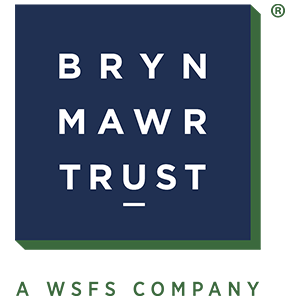

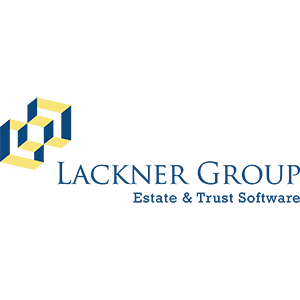
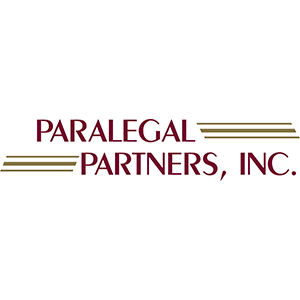


Planning Team
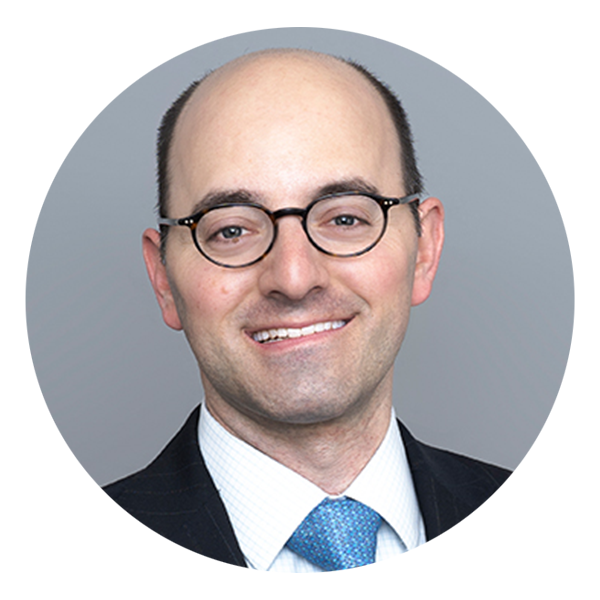
Justin H. Brown, Esq.
Ballard Spahr

Terrance A. Kline, Esq.
The Law Offices of Terrance A. Kline
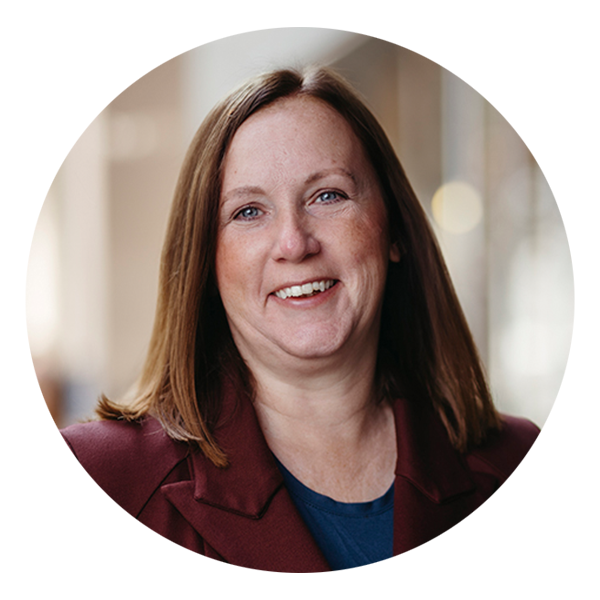
Alison T. Smith, Esq.
McNees Wallace Nurick LLC (Pittsburgh)
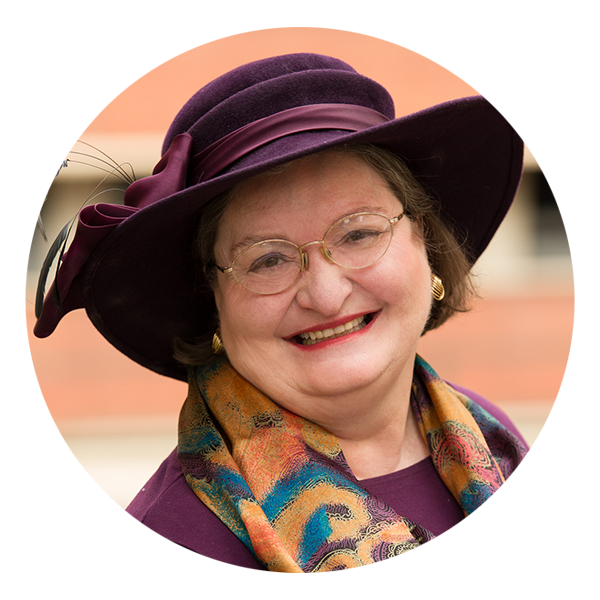
Patti Spencer, Esq.
Spencer Law Firm
Faculty
Judge John J. McNally III
Judge McNally was elected to the Court of Common Pleas of Dauphin County on November 7, 2017, and serves in the Family Law Division. He also serves as an Orphans’ Court Judge, presiding over Guardianship matters, and is honored that Dauphin County was selected to implement the OEJC Legal Services Organization Pilot Project. . Since 2022, Judge McNally has served on the Orphans’ Court Procedural Rules Committee. Prior to his public service, he practiced civil litigation since 1988 and was accredited by the Veterans’ Administration to represent Veterans pursuing benefits available to them. Judge McNally served as President of the Dauphin County Bar Association (2003) and as Commissioner on the Pennsylvania Gaming Control Board (2013-2015). Judge McNally is a graduate of Central Dauphin High School and earned his B.S. degree from Penn State University in 1984 and his J.D. degree from Dickinson School of Law in 1988. John is the proud father of three children and enjoys active participation in their many activities and endeavors
Dana M. Breslin, Esq., CELA
Dana M. Breslin is a graduate of Villanova University School of Law. She began the Senior Citizens’ Project at Delaware County Legal Assistance Association, which was one of the first in the country. Ten years later she went into private practice with her husband, Robert J. Breslin and mentor, Robert F. Pappano. The firm is now known as Breslin, Murphy Roberts, P.C. Dana became a Certified Elder Law Attorney {CELA) of the National Elder Law Foundation in May 1996. Her practice concentrates on Elder Law, Estate Drafting and Administration. She is a Fellow with the American College of Trust Estate Counsel {ACTEC). She has been an active member with the Pennsylvania Bar Association Elder Law Section as well as the Real Property Probate Trust Section. She is a frequent lecturer with the Pennsylvania Bar Institute. She is a member of NAELA, PAELA, and the Delaware County Estate Planning Council. She is a past Board Member of Senior Community Service and currently is on the Advisory Board of the Delaware County Office of Services for the Aging.
Daniel Cooper, Esq.
Daniel Cooper is a partner and the head of Sterlington’s Private Wealth practice. He advises UHNW and HNW individuals, families, and their advisors on all aspects of wealth preservation, estate and gift tax planning, family business succession, and philanthropy. Prior to Sterlington, Daniel was a partner at Morgan Lewis. Daniel provides strategic guidance on sophisticated planning structures, including family trusts, private trust companies, family governance vehicles, and private placement life insurance. He also advises on the administration of complex estates and trusts, with experience supporting fiduciaries through probate, accounting proceedings, and high-value estate administration. Daniel has also worked at a wealth management firm, where he provided estate planning, legal and tax advice to clients with assets in the billions. Daniel is recognized by the Chambers High Net Worth Guide for Private Wealth Law in Pennsylvania and is listed in The Best Lawyers in America for Trusts and Estates. He serves on the Professional Advisors Council for The Barnes Foundation and the Legacy Advisors group for The Children’s Hospital of Philadelphia. Daniel holds a J.D. and B.A. from the University of Virginia and an LL.M. in Taxation from NYU School of Law. He is admitted to practice in New York, Pennsylvania, and South Dakota.
Marc Wertheimer, M.D.
Marc J Wertheimer, MD received his Bachelor of Arts degree from Swarthmore College and his Doctor of Medicine at Jefferson Medical College of Thomas Jefferson University. He completed his internship and residency in internal medicine at Lankenau Hospital. He was clinical associate professor at the University of Pennsylvania. His specialty certification was in internal medicine. While now retired, he had been on active staff at Hospital of University of Pennsylvania, Riddle Memorial Hospital, consulting staff at Crozer-Chester Medical Center. He was a member of the American Medical Association, the American College of Physicians, the Pennsylvania Medical Society and the Delaware County Medical Society. He had been a participant in clinical research at the University of Pennsylvania and one jointly sponsored by Columbia University and a private research lab. He also participated in teaching medical students from the University of Pennsylvania. He rotated through practice and comprehensive attendance to clinical care for internal medicine patients. Most important, he had an active medical practice in internal medicine for many years. He was in the “trenches” with assisting patients in understanding advance directives, living wills and at times helping families in making decisions to carry out the wishes of his patients.
Courtney M. Wentzel, Esq.
Courtney is a litigator and Member (partner) at McNees Wallace & Nurick. Her practice focuses on fiduciary and guardianship litigation. She handles complex matters involving trusts, estates, powers of attorney, and guardianships. Courtney represents petitioners, professional guardianship agencies, and corporate fiduciaries in guardianship matters, as well as individuals and professional fiduciaries, including banks and trust companies, in sophisticated trust matters. She advises clients on the interpretation of trust documents, fiduciary risk management, and guardianship proceedings in Orphans’ Courts throughout Pennsylvania. While a strong advocate in the courtroom, she is equally focused on achieving practical resolutions that align with her clients’ goals. In addition to her practice, Courtney leads The Vista School Pro Bono Project, providing legal services to parents of adult children with disabilities seeking to obtain guardianships. She was recently recognized as a 2025 Rising Star® by Super Lawyers®. Courtney received her J.D. from the Dickinson School of Law in Carlisle, PA, and her B.S. from Shippensburg University.
Rhodia D. Thomas, Esq.
Ms. Thomas serves as Executive Director of MidPenn Legal Services, a non-profit law firm that provides civil legal services for low-income residents and survivors of domestic violence and sexual assault in eighteen counties in Central-Pennsylvania. She graduated magna cum laude from Syracuse University with a B.S. in Education and received her J.D. from Widener Commonwealth Law School. Ms. Thomas is active in the civil legal aid community, where she currently serves as Chair of the PA Project Directors Association, Past Chair of the National Legal Aid and Defender Association Board of Directors and represents NLADA in the ABA House of Delegates. She is also a member of PBA and serves in the PBA House of Delegates. Ms. Thomas has trained at national conferences on issues of Diversity, Inclusion and Implicit Bias, Board Development and Succession Planning and she has served as an adjunct Professor at both the Penn State Dickinson Law and Widener Commonwealth Law Schools.
Alexandra M. Sipe, Esq.
Alexandra M. Sipe is the founder of Sipe Law LLC. Ms. Sipe focuses on estate planning for individuals, succession planning for family farms, advising individual and corporate fiduciaries on trust and estate administration legal issues. Ms. Sipe received his B.A., Double Major Economics and Political Science, from Dickinson College, and his J.D. from The Dickinson School of Law, Pennsylvania State University.
Keith Hinkel, Jr., Esq.
Keith Hinkel Jr. is the Assistant Director for the Office of Elder Justice in the Courts (OEJC) at the Administrative Office of the Pennsylvania Courts (AOPC). Mr. Hinkel works closely with the Advisory Council on Elder Justice, and other divisions of the AOPC, on various projects related to issues involving guardianship, elder abuse and neglect, and access to justice affecting the Commonwealth’s elders. Prior to joining the OEJC, Mr. Hinkel worked as an AOPC Information Technology systems trainer for the common pleas courts for over six years. Mr. Hinkel has a Masters of Public Administration and a bachelor’s degree in Adult Education, with over 17 years of experience providing training and analytical work.
Daniel F. Hayward, Esq.
Daniel is a nationally respected trust and estate lawyer who provides sophisticated and valuable advice on complex trust issues and fiduciary litigation. Daniel brings a wealth of experience in Delaware trust law to the individual and corporate clients that he serves. He is well versed in the unique and complex aspects of Delaware trusts and is frequently sought after as an authority in the field. Daniel drafts Delaware trusts, including directed trusts, dynasty trusts, and self-settled asset protection trusts, for local, national and international clients. He also works with clients and their advisors to transfer the situs of existing trusts created in other jurisdictions to the State of Delaware, and advises on utilizing the various methods available under Delaware law to modify trusts, including decanting, merger, nonjudicial settlement agreements, and modification agreements, as well as the potential income, gift, estate, and generation-skipping transfer tax consequences of such methods. Daniel provides robust representation and sound counsel to individual and corporate trustees and other fiduciaries. He advises trustees regarding ongoing trust administration as well as best practices concerning fiduciary operations. He also advises trustees and fiduciaries on their legal and fiduciary obligations to improve compliance, manage costs of administration, and how to minimize their risk exposure. Daniel is a familiar figure in the Delaware Court of Chancery, whether petitioning the court for instructions relating to difficult trust administration matters or resolving fiduciary litigation. He is a skilled advocate for his clients and respected by his peers and colleagues in the Delaware bar and judiciary. He has been recognized by legal industry organizations for his skills in trust and estate planning and honored as a fellow of the American College of Trust and Estate Counsel (ACTEC), an organization reserved for lawyers who demonstrate the highest level of professionalism in wills and trusts, estate planning, and tax law. Daniel lives in Hockessin, Delaware with his wife, Stephanie, and their three children.
Luke Edmondson, Esq.
Luke M. Edmondson is an Associate at KMS Law Offices, LLC. His practice is focused on estate planning, estate administration, and fiduciary counseling. Luke earned his B.A. in English from Penn State University, his J.D. from the Syracuse University College of Law, and his LL.M. in Taxation from the Temple University Beasley School of Law. Following law school, Luke clerked for the Honorable Catherine Fitzpatrick in the Superior Court of New Jersey in Trenton, New Jersey. Luke is the current Chair of the Technology Committee for the Probate Section of the Philadelphia Bar Association, and he is a graduate of Class IV of the American College of Trust and Estate Counsel (ACTEC) Mid-Atlantic Fellows Institute.
George M. Riter, Esq.
George M. Riter joined Timoney Knox as a partner in 2001 and served as managing partner from July 2007 through June 2018. His practice of wills, trusts, estates, corporate and tax law focuses on the estate planning needs of individuals, families, business owners, individuals with special needs and non-profit entities and foundations. For estate planning clients, George’s practice is devoted to evaluating, understanding and addressing all of the client’s needs. His approach is to thoroughly review each client’s unique situation, including the family dynamics, and to assist the client with analyzing assets, managing liabilities and reducing exposure to inheritance and estate taxes. George has advised clients and non-profit entities on gifting options and the establishment of and operation of charitable trusts, corporate affairs, and public and private foundations. George has developed a substantial practice helping plan for future needs of family members with special needs in the form of physical and mental disabilities and the recovery of damages from personal injury litigation. George received a bachelor’s degree in biology from Gettysburg College in 1980 and earned his law degree from St. Mary’s University School of Law, San Antonio, Texas in 1983, where he was an editor of the Law Review. George also received a Masters in Taxation from Villanova University School of Law, Villanova, Pennsylvania, in 1991. George is a member of the American Bar Association, Tax and Probate Sections, as well as the Montgomery County Bar Association and an officer in the Montgomery County Probate and Tax section, Philadelphia Bar Association, Pennsylvania Bar Association, Philadelphia Estate Planning Council and Montgomery County Estate Planning Council.
Julian E. Gray, Esq., CELA
Mr. Gray is the founder and managing attorney of Julian Gray Associates (www.grayelderlaw.com) located in Pittsburgh, Pennsylvania. He concentrates his practice in the area of settlement planning for disabled individuals (www.saveyoursettlernent.com), elder law and special needs planning, with related emphasis on Medicaid and Veterans benefits eligibility. Mr. Gray’s practice encompasses all of Pennsylvania and has provided counsel on select matters nationwide. Mr. Gray received his undergraduate degree from Penn State University and his law degree from Duquesne University School of Law. He is a member of the National Academy of Elder Law attorneys where he has served as a director of the Pennsylvania Chapter. Mr. Gray has been selected for inclusion in Pennsylvania Super Lawyers® and in Best Lawyers in America for multiple years. He is also a past chair of the Elder Law Council of the Pennsylvania Bar Association Elder Law Section and has served on the planning team for the annual PBI Elder Law Institute. Mr. Gray is an accredited attorney before the Department of Veterans Affairs. He is member of the Special Needs Alliance (www.specialneedsalliance.com), a national, non-profit organization committed to helping individuals with disabilities, their families and the professionals who represent them, where he has served on the board of directors. Mr. Gray is the former Chair of the Pennsylvania Orphan’s Court Procedural Rules Committee.
Robert Clofine, Esq., CELA
Mr. Clofine has practiced in York since 1985. His practice focuses primarily on estate planning and administration and elder law. He is a certified elder law attorney (CELA) by the National Elder Law Foundation. He is a frequent contributor to local newspapers and has authored over 300 articles on issues of estate planning and personal finance. He has been quoted and mentioned by USA Today, Money Magazine, Kiplinger’s Personal Finance, Kiplinger’s Retirement Report, Mutual Fund Magazine, The Wall Street Journal, Bloomberg Personal Wealth Manager and Fortune Magazine in articles dealing with estate planning and elder law. Mr. Clofine is a fellow of the American College of Trust Estate Counsel and a member of the Joint State Government Commission’s Advisory Committee on Decedents’ Estates Laws. He is a past president of the Pennsylvania Association of Elder Law Attorneys and the former chair of the Elder Law Section of the Pennsylvania Bar Association. He has been selected for inclusion in Pennsylvania Super Lawyers® in elder law every year since 2005 and has been included in the Best Lawyers in America since 2008 in the field of elder law. He is a 1978 cum laude graduate of Villanova University and a 1982 cum laude graduate of the University of Pittsburgh School of Law.
Justin H. Brown, Esq., LL.M.
Justin H. Brown is a partner at Ballard Spahr LLP where he is a member of Ballard’s Private Client Services Group and the Tax Group. A Fellow in the American College of Trust and Estate Counsel, he develops creative strategies for wealth transfer, asset protection, and business succession. Justin also counsels fiduciaries on their duties and obligations in connection with the administration of estates and trusts. A leader in the area of digital asset planning, he implements cutting-edge strategies to help clients plan for technologically innovative asset classes. Justin is a co-host of “The Digital Planning Podcast,” which educates individuals about all things digital in estate planning, business planning, and estate administration. Now in its seventh season, The Digital Planning Podcast is internationally known as one of the leading podcasts on digital estate planning. Justin was previously an adjunct professor at Temple University’s James E. Beasley School of Law where he taught income taxation of trusts and estates. He is the immediate past Chair of the Probate and Trust Division of the Real Property, Probate and Trust Law Section of the Pennsylvania Bar Association. A frequent writer and speaker, Justin was awarded the ADL’s national Daniel R. Ginsberg Leadership Award in recognition of his work in ADL education. He received his B.A. from Washington University in St. Louis, his J.D. from The American University Washington College of Law, and his LL.M. in Taxation from Villanova University School of Law.
Jeremiah W. Doyle, IV, Esq.
Jere Doyle is a Senior Director and an estate planning strategist for BNY Wealth. He has been with the firm since 1981. Jere provides high net worth individuals and families throughout the country with integrated wealth management advice on how to hold, manage and transfer their wealth in a tax efficient manner. Jere is admitted to practice law in the Commonwealth of Massachusetts and before the United States District Court, United States Court of Appeals (First Circuit) and the United States Tax Court. He formerly served as a member of the Massachusetts Joint Bar Committee on Judicial Appointments. Jere is the co-author of Income Taxation of Trusts and Estates, a law school casebook published in 2023 by Carolina Academic Press. He is also the editor and co-author of Preparing Fiduciary Income Tax Returns, a contributing author of Preparing Estate Tax Returns, a contributing author of Understanding and Using Trusts, a contributing author of Drafting Irrevocable Trusts in Massachusetts, all published by Massachusetts Continuing Legal Education, a reviewing editor of the 1041 Deskbook published by Practitioner’s Publishing Company and a contributing columnist for Estate Planning Review – The Journal published by Wolters Kluwer and a member of its Editorial Board. Jere is an adjunct professor of law in the Graduate Tax Program at Boston University School of Law teaching courses in Exempt Organizations, Tax Aspects of Charitable Giving, Income Taxation of Estates and Trusts and the Tax Aspects of Marital Dissolution. Jere received a LL.M. in banking law from Boston University Law School, a LL.M. in taxation from Boston University Law School, a Juris Doctor from Hamline University Law School and a BS in accounting from Providence College. He is a Fellow of the American College of Trust and Estate Counsel (ACTEC). He served as president of the Boston Estate Planning Council and as a member of its Executive Committee and was a 20-year member of the Executive Committee of the Essex County Bar Association. He is also a member of the steering committee for the American Institute of Certified Public Accountants Advanced Estate Planning Program. He was named as the “Estate Planner of the Year” in 2009 by the Boston Estate Planning Council. In 2011 he was elected to the National Association of Estate Planners & Councils (NAEPC) Estate Planning Hall of Fame as an Accredited Estate Planner® (Distinguished). He has spoken at numerous professional education programs throughout the country on various topics, been quoted in numerous business publications and has appeared on CNBC, MSNBC, Bloomberg, Yahoo! Finance and CNN.
Bradley D. Terebelo, Esq.
Brad’s practice involves all aspects of trust and estate planning and administration, focusing extensively on trust administration and fiduciary litigation. Brad has spoken and written on issues concerning trust modification and change of situs. He presented at the Pennsylvania Supreme Court Orphans’ Court Rules Committee concerning representation of minor, unborn and unascertained beneficiaries in trust proceedings. Brad is currently chair of the Litigation Committee of the Philadelphia Bar Association’s Probate and Trust Law Section. Brad is on the Board of Directors of the Philadelphia Estate Planning Council and co-chairs the Council’s Outreach Committee. Brad is also a former member of the Executive Committee of the Section and was former chair of that Section’s Legislative Committee. Brad is a Fellow of the American College of Trust and Estate Counsel (ACTEC), is named a Super Lawyer and is recognized as a Best Lawyer. In 2019, Brad was named a Lawyer on the Fast Track by The Legal Intelligencer as part of the publication’s annual Professional Excellence Awards.
Dennis C. Reardon, Esq.
Mr. Reardon is the founder of Reardon & Associates, LLC, a law firm in Wayne. He specializes in tax matters related to estate, business and compensation planning. The firm’s clients generally are family owned businesses, professionals, executives, and fiduciaries or beneficiaries of trusts and estates. Additional areas of specialty include estate administration; representation regarding business transactions, including sales and purchases of businesses; shareholder matters; buy-sell agreements; S Corporation and LLC planning; and life insurance planning. Mr. Reardon has spoken on tax and insurance planning topics at meetings of: The American College of Trust and Estate Counsel (Seminar at Annual Meeting); The American Institute of Certified Public Accountants Employee Benefits Conference; the Million Dollar Round Table; the Association for Advanced Life Underwriting; the Washington State Bar Association and Seattle Planning Council; the New York City Estate Planning Council; CLU Institutes and American College meetings; various PBI meetings, including the Estate Planning Institute since 2006; and other professional groups throughout the United States. Mr. Reardon wrote three colums per year from 2002 through 2023 on “Estate Planning Strategies” for the Journal of Financial Service Professionals. He is the author of S Corporations: Estate, Business and Compensation Planning (1992), and Working with S Corporations (1996, 2001), publications of the National Underwriter Company. His articles have also appeared in the Estates, Gifts and Trusts Journal; Estate and Financial Planners Quarterly; and other professional publications. He also developed the course materials and had been an instructor for many years for the Insurance Concepts course that was part of the Tax Management Seminars offered by KPMG Peat Marwick to its professional staff. Mr. Reardon is a graduate of the University of Connecticut (B.A.); Western New England College, School of Law (J.D.); Temple University (LL.M., Taxation); and has earned the designations of Chartered Life Underwriter (CLU) and Chartered Financial Consultant (ChFC) from the American College. He is a Fellow of the American College of Trust and Estate Counsel and a member of its Business Planning Committee, and is the chairman of its Life Insurance Subcommittee. Mr. Reardon is a member of the Philadelphia, Pennsylvania, and American Bar Associations. He is a past president of the Delaware County Estate Planning Council and the Attorney/CPA Forum of Delaware County, and is also a member of the Philadelphia Estate Planning Council. He has been designated a Pennsylvania Super Lawyer® every year since 2009 and has received an AV® Peer Review Rating by Martindale Hubbell®.
Kendra D. McGuire, Esq.
Kendra is a fiduciary litigation attorney who focuses her practice on resolving complex legal issues involving trusts, estates, powers of attorney and guardianships. She primarily represents fiduciaries, including individuals and professional fiduciaries such as banks and trust companies and has more than 35 years of experience helping her clients manage fiduciary risks, interpret trust documents, and handle legal matters related to trusts and estates in Pennsylvania courts. Kendra currently serves as the Chair of the State Orphans’ Court Rules Committee and is a court appointed member of both the Pennsylvania Supreme Court’s Advisory Council on Elder Justice in the Courts as well as the Joint State Commission Advisory Council on Decedents’ Estates. Kendra is active with the Lancaster Bar Association as the past-Chair of Law Review Committee and Nominating Committee and is a past Member of Judiciary Committee and Board of Directors. She has also served on the Lancaster County Orphans’ Court Rules Committee. She has been recognized by Best Lawyers® for 10 consecutive years for her work in Commercial Litigation and Litigation – Trusts and Estates and was designated Lawyer of the Year – Fiduciary Litigation in 2017 and 2023. She is also recognized as a Super Lawyer® and has been rated AV Preeminent by Martindale Hubbell for 10 consecutive years. She has been recognized by the Central Penn Business Journal as a Woman of Influence and has been designated as a top attorney by Philadelphia Magazine. Passionate about her community, Kendra has served on several boards and is currently on the Executive Committee of the Economic Development Corporation of Lancaster, where she also serves as the Chair of the Diversity, Equity and Inclusion Committee. Kendra received her J.D. from the University of Pittsburgh School of Law and her B.A. from Franklin & Marshall College.
Terrance A. Kline, Esq.
Mr. Kline’s practice is devoted to estate planning and estate and trust administration. He also counsels clients in the creation and operation of private foundations and public charities and other forms of charitable gifts. Mr. Kline writes and lectures on estate and charitable planning topics. He is a Fellow of the American College of Trust and Estate Counsel and a member of other professional groups that advance the study of trusts, estates, and charities. He is admitted to practice in Pennsylvania, New Jersey, and Florida, and in various federal courts. Mr. Kline holds law degrees from the University of Pittsburgh (J.D.) where he was executive editor of the Law Review, Temple University (LL.M. in Taxation), and Columbia University School of Law (LL.M.).
Obadiah English, Esq.
Mr. English is a Partner at MannionPrior, LLP. His practice is concentrated in litigation involving trusts, estates, guardianships and other fiduciary matters. He has represented both individuals and corporate clients in a variety of matters in the Orphans’ Court and the Civil Division of the Court of Common Pleas of Pennsylvania, including will and trust contest, trust litigation, probate disputes and fiduciary surcharge actions. Mr. English has also appeared on appellate matters before the Superior, the Commonwealth and the Supreme Courts of Pennsylvania. Mr. English is a past President of the Bucks County Estate Planning Council. Mr. English is also former Chair of the Probate and Tax Section of the Montgomery County Bar Association and chair of the Orphans’ Court Section of the Bucks County Bar Association. Mr. English is also an active member of the Philadelphia Bar Association’s Probate and Trust Law Section. Mr. English is a frequent lecturer on fiduciary litigation issues. Mr. English is a Certified Mediator and has also served as an arbitrator in the Compulsory Arbitration Program for the Court of Common Pleas of Philadelphia County. Mr. English earned his Juris Doctorate from Seton Hall University School of Law. Mr. English earned his Bachelor of Arts in Psychology from Wake Forest University.
Peter E. Moshang, Esq.
Peter E. Moshang, Esq. is a Partner at Heckscher, Teillon, Terrill & Sager, P.C. in West Conshohocken, Pennsylvania. Peter provides guidance to families and individuals on all aspects of their estate planning, including generational transfer of family wealth, business succession, philanthropy, next generation education and tax minimization. Peter currently serves on the Executive Committee of the Philadelphia Bar’s Probate and Trust Law Section and serves as a Co-Chair of the IRA Plans & Distributions Committee for the American Bar Association Real Property Trusts & Estate Section. Peter is admitted to practice law in Pennsylvania, New Jersey and Florida, and is a member of the Pennsylvania, Montgomery County and Philadelphia County Bar Associations. He is also a member of the Philadelphia Estate Planning Council and Montgomery County Estate Planning Council. Peter was named a Pennsylvania Super Lawyers Rising Star in 2019, 2020, 2021 and 2022, and was named Best Lawyers: Ones to Watch in America for 2023. Peter received his B.A. in Political Science and Economics, summa cum laude, Phi Beta Kappa, from the University of Richmond, and his J.D., cum laude, from Boston University School of Law, where he was the Editor-in-Chief of the American Journal of Law & Medicine.
Jennifer Nevins, Esq.
Ms. Nevins is a shareholder in Stevens & Lee’s Trusts and Estates practice group and concentrates ber practice in Orphans’ Court matters, including the administration and settlement of trusts and estates, trust reformations, guardianship proceedings and administration, and litigation involving fiduciary matters and the interpretation of estate planning documents. She advises clients on matters of regulatory compliance by corporate fiduciaries. She regularly works with nonprofit organizations, particularly higher education and health care institutions, on the administration of endowment funds, gift planning and compliance with gift restrictions, and reformation of charitable trust and gift instruments, and is experienced in the application of Pennsylvania’s cy pres doctrine. She received her BA from the University of Maryland in 1999 and her ID from The Dickinson School of Law of The Pennsylvania State University in 2005.
C. Thomas Work, Esq.
Tom is a fellow of the American College of Trust and Estate Counsel and a former chair of the Trusts & Estates practice group at Stevens & Lee, a regional law firm headquartered in Reading. He concentrates his practice in estate and tax planning, fiduciary administration, and litigation of fiduciary matters. He serves as a mediator of disputes arising from the administration of trusts and estates and as an expert witness on fiduciary matters throughout Pennsylvania. Tom chairs the Pennsylvania Joint State Government Commission’s Advisory Committee on Decedents’ Estates Laws. He served as the reporter and chairman of the Committee’s subcommittees that drafted both the new Pennsylvania Directed Trust Act and the Pennsylvania Uniform Trust Act, enacted into law in 2006 as the first complete codification of trust law in Pennsylvania and a model for other states. Tom is a frequent speaker on estate planning, the Uniform Trust Act, the Directed Trust Act and fiduciary litigation for the Pennsylvania Bar Institute and other organizations. He developed the Pennsylvania Bar Institute’s programs on Estate Planning for Subsequent Marriages and the Uniform Trust Act.
Patti S. Spencer, Esq.
Patti S. Spencer, Esq., trusts, estates and tax attorney, is a nationally recognized author and educator. Ms. Spencer has been recognized by the legal profession for her educational commitment and her work with families, individuals, businesses, attorneys and accountants. She serves as a peer-nominated fellow of the American College of Trust and Estate Counsel (ACTEC). Ms. Spencer serves private trustee and/or executor and as an expert witness in estate tax, estate planning, and fiduciary matters. She specializes in federal estate planning, gift and generation-, skipping tax planning, estate and trust administration, business succession planning, tax planning for qualified plan distributions, and fiduciary income tax, corporate tax planning.
Eugene J. Herne, Esq.
Mr. Herne currently serves as the Chief Deputy Attorney General for the Pennsylvania Office of Attorney General, in charge of its Charitable Trusts and Organizations Section, which performs the office’s supervisory role of property committed to charitable purposes. He received his B.S. from the University of Scranton and J.D. from Duquesne University School of Law. He served on the council for the Allegheny County Probate and Trust Law Section. He lectures frequently before universities, financial institutions and professional groups.
Jennifer A. Kosteva, Esq.
Ms. Kosteva is a shareholder of Heckscher, Teillon, Terrill & Sager, P.C. in West Conshohocken, PA. She received her B.S. in Accountancy, summa cum laude, and M.S. in Accountancy (Taxation), magna cum laude, from the University of Notre Dame in South Bend, Indiana, and her J.D. from the University of Virginia School of Law in Charlottesville, Virginia. Prior to joining Heckscher, Teillon, Terrill & Sager, Ms. Kosteva was an associate in the Private Wealth Services group of McGuireWoods, LLP in Richmond, Virginia. She also clerked for the Honorable James C. Dever, III, United States District Judge for the Eastern District of North Carolina, in Raleigh, North Carolina. Ms. Kosteva focuses her practice on sophisticated estate planning, trust and estate administration, and estate and gift taxation. She has a particular focus on the impact of divorce on trusts, the occurrence of death in the midst of divorce and the importance of prenuptial agreements in the estate planning context. She is a frequent collaborator with family law lawyers on these issues and has written articles and continuing education materials on these subjects. Ms. Kosteva is a Fellow of the American College of Trust and Estate Council (ACTEC). She is a Past President and member of the Montgomery County Estate Planning Council and a member of the Philadelphia Estate Planning Council. She also served as an adjunct faculty member for several years at the Temple University Beasley School of Law, where she co-taught an estate planning drafting course to JD and LLM students. Ms. Kosteva is a member of the Pennsylvania, Philadelphia and Montgomery County Bar Associations, including the relevant probate sections, and a member of the American Bar Association, Real Property Trust and Estate Law Section.
Brittany Cook, J.D.
As Fiduciary Counsel and Wealth Planner at Tiedemann Trust Company, a subsidiary of AlTi Tiedemann Global, Brittany is an expert in Delaware trust and tax law with extensive experience in estate planning and helping clients navigate the complexities of intergenerational wealth. Prior to Tiedemann, she held positions at Bessemer Trust. Brittany is certified by the state bars in Pennsylvania and New Jersey. She is also a member of several organizations, including the American Bar Association, the Philadelphia Estate Planning Council, the Estate Planning Council of Delaware, and sits on the Women’s Committee at the Pennsylvania Academy of the Fine Arts and the Leadership Council at the Haverford Boys School. Brittany earned a Juris Doctor degree from the Rutgers University School of Law, as well as a Master of Law in Taxation and an Estate Planning Certification from Temple University in Philadelphia. She holds a Bachelor of Arts in art history and government from Hamilton College.
Michael F. Rogers, Esq.
Mr. Rogers is a graduate of Temple University’s Beasley School of Law. He holds Juris Doctor and Master of Laws (Taxation) degrees. He also holds an M.B.A, degree from Drexel University. He is a Certified Public Account (currently inactive license.) Mr. Rogers practice for approximately 40 years has focused on Estate Planning and Administration, and Business and Tax Planning and Counseling. Michael is a Past President of the 2,000+ member Montgomery Bar Association. He is a Past President of the Montgomery Bar Foundation and is the Treasurer and a Director of the Montgomery Child Advocacy Project (MCAP.) He is a member of the American Bar Association, and for many years was a member of the Pennsylvania Bar Association’s House of Delegates.
Vicky Ann Trimmer, Esq.
Ms. Trimmer is a partner in the Harrisburg area law firm of Daley, Zucker, LLC, where she concentrates in estate planning and administration, business organization and planning, Pennsylvania state and local taxation and agricultural law. She received her B.S. from the University of Pittsburgh and was awarded her J.D. from the Dickinson School of Law. She also received an associate’s degree in Business Administration from Harrisburg Area Community College. Ms. Trimmer served as Senior Assistant Counsel with the Pennsylvania Department of Revenue of the Office of Chief Counsel. She is also a Certified Public Accountant. She was elected as a Fellow of the American College of Trust and Estate Counsel in October 2019. Ms. Trimmer has made numerous presentations before professional organizations, including the PICPA conferences and Pennsylvania Bar Institute events. She is a member of the Pennsylvania, Dauphin County and Cumberland County Bar Associations and the Pennsylvania Institute of Certified Public Accountants. Ms. Trimmer is a past adjunct associate professor of law at the Dickinson School of Law of the Pennsylvania State University. She is a past president of the Estate Planning Council of Central Pennsylvania, Inc. Ms. Trimmer is a member of the Upper Allen Women’s Club and the General Federation of Women’s Clubs Pennsylvania, which is a women’s organization dedicated to community improvement by enhancing the lives of others through volunteer service. Ms. Trimmer served as state president of GFWC PA for the 2013-2016 term. She is currently serving as a member of the GFWC international Board of Directors as Chairman of the Civic Engagement committee.
Rebecca L. Hagan, Esq.
Ms. Hagan is Managing Senior Counsel at PNC Financial Services Group, Inc. and provides support to PNC’s Asset Management Group, advising on all aspects of trust and estate administration, with a focus on Pennsylvania fiduciary litigation. Prior to joining PNC, she was in-house counsel at the Bank of New York Mellon. Before moving in-house, Ms. Hagan concentrated her practice in the areas of gift and estate tax planning and estate and trust administration, with an emphasis on probate and trust litigation. Ms. Hagan is a member of the Pennsylvania Bar Association and has lectured frequently on fiduciary topics for the Pennsylvania Bar Institute. She received her J.D. from Washington and Lee University School of Law and her B.A., magna cum laude, from the University of Virginia.
Alison T. Smith, Esq.
Ms. Smith is chief counsel in the legal department at McNees, Wallace, & Nurick LLC, in its Pittsburgh office. Ms. Smith provides support to the bank’s asset management group on legal matters relating to the administration of estates and trusts, including charitable trusts and endowments, and other fiduciary liability matters. Prior to joining PNC Bank, Ms. Smith served as chair of the estate administration department in the Pittsburgh law firm of FGSM, P.C., representing clients in the areas of estate and trust administration, estate planning, and business succession planning, and in Orphans’ Court litigation, where she frequently represented fiduciaries and other interested parties in matters involving alleged breaches of fiduciary duty. In private practice, Ms. Smith also represented business clients in the areas of business formation and planning, mergers and acquisitions, and nonprofit clients in obtaining tax-exempt status and various governance matters. Ms. Smith is a former Chair of the Pennsylvania Bar Association’s Real Property, Probate and Trust Law Section, current chair of the section’s Pro Bono Committee, and is an assistant editor of the Section’s newsletter. Ms. Smith is also a frequent lecturer on the topics of estate and trust administration, estate planning and business planning. Ms. Smith is a graduate of the University of Tennessee and the Duquesne University School of Law.

Need help navigating your CLE requirements?
You have a lot on your plate. We’ll help you stay on top of your compliance — in PA and beyond.